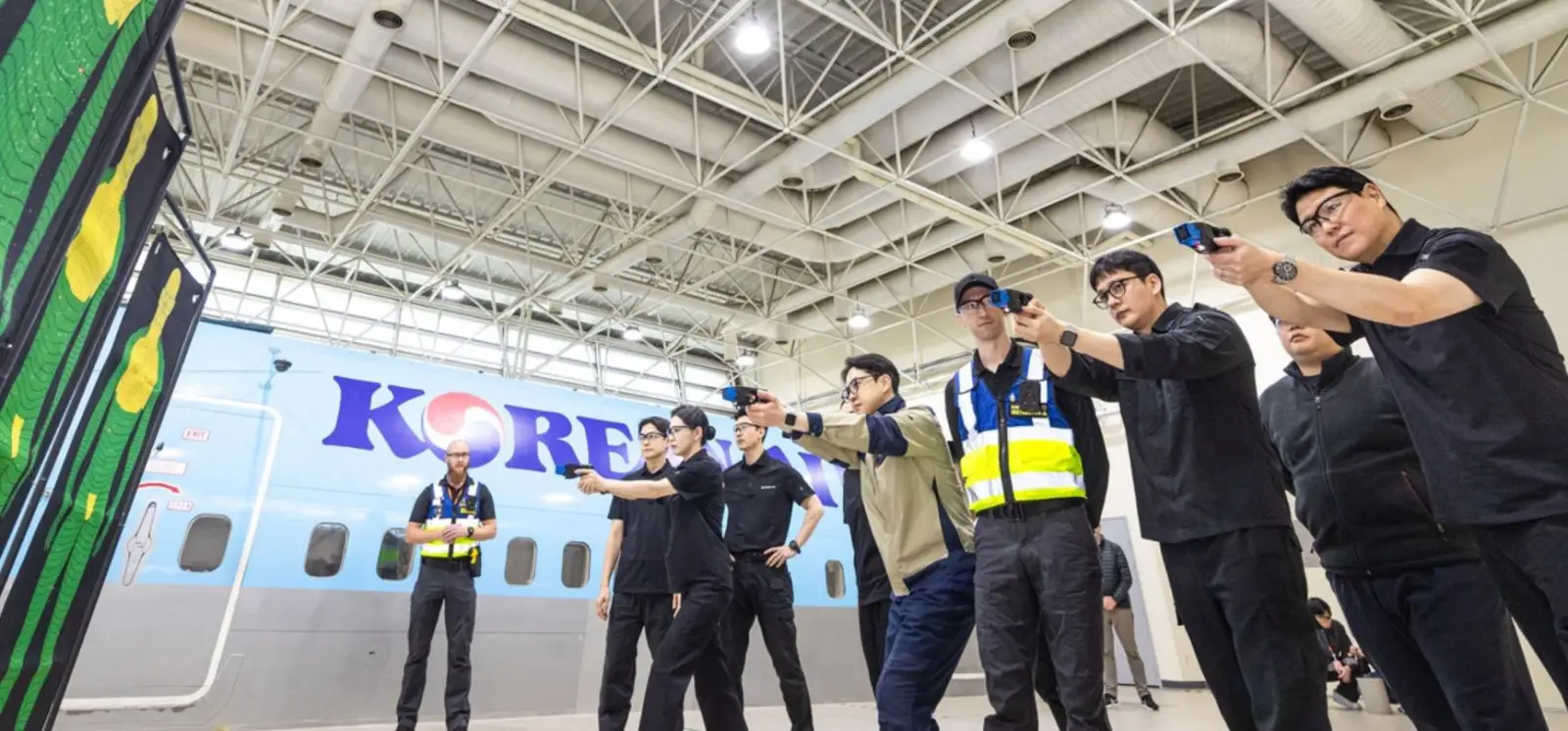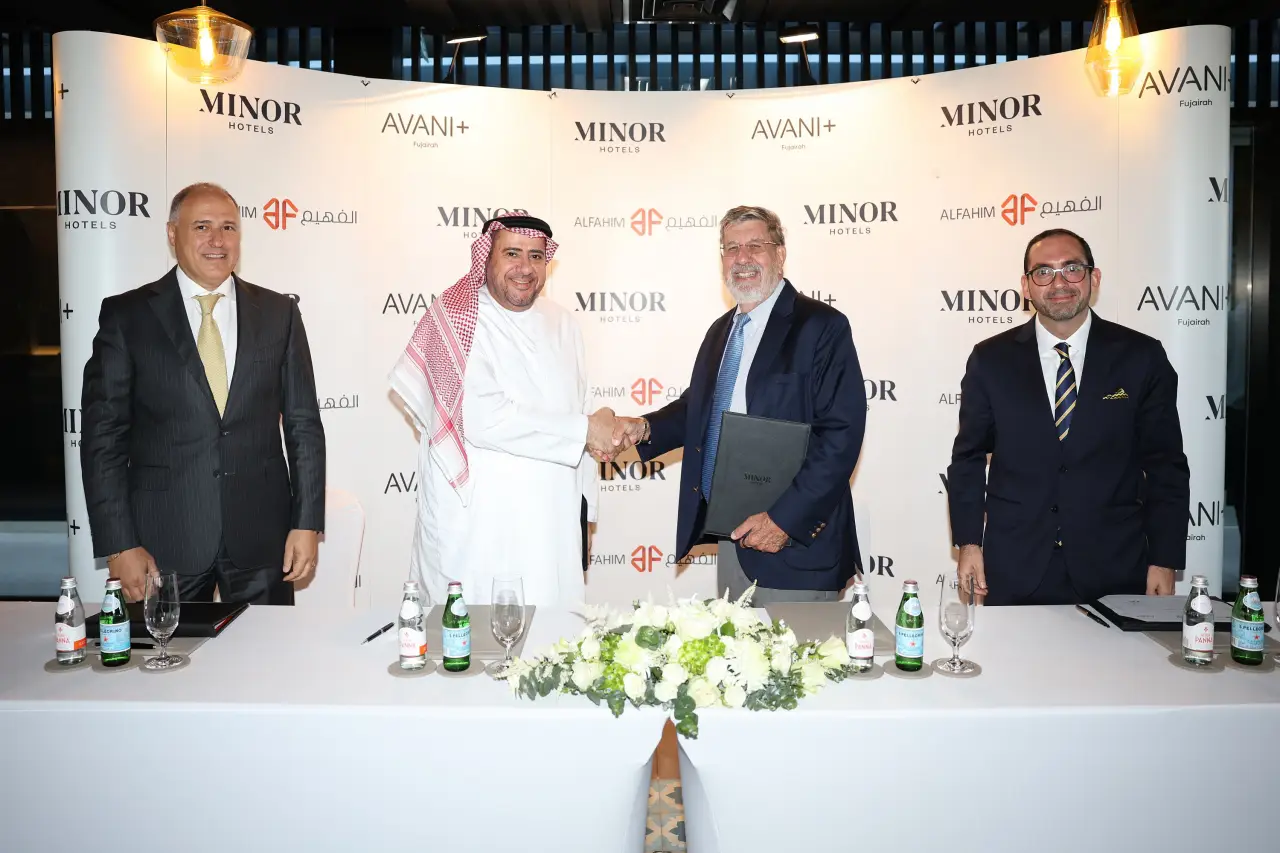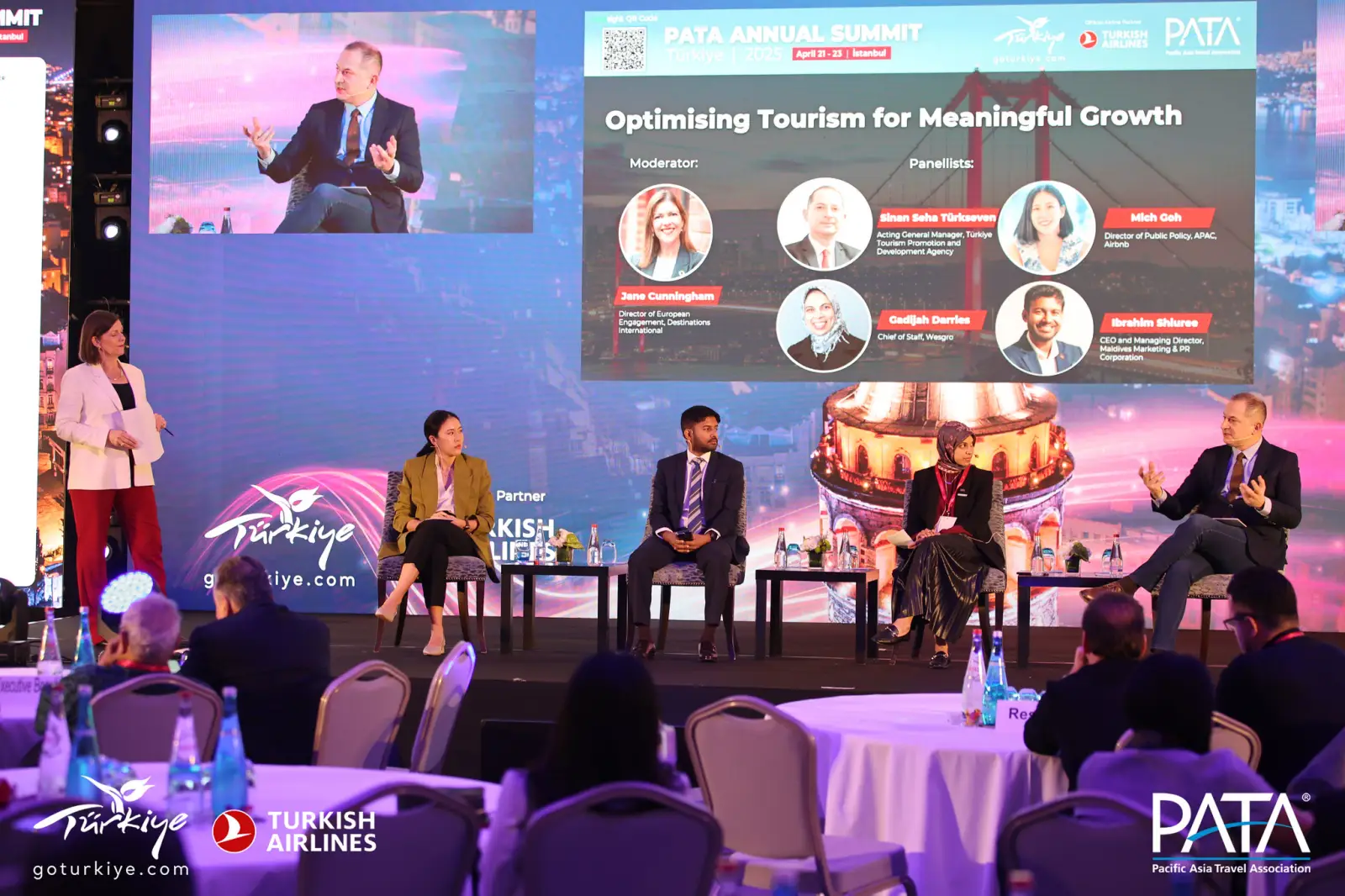The German National Tourist Board (GNTB), the GCB German Convention Bureau, and the EVVC European Association of Event Centres have released the findings of the “Meeting & EventBarometer 2023/2024,” indicating a robust recovery in the German events sector.
Key figures for 2023 highlight a significant rise in both the number of events and attendees, nearing the numbers seen before the pandemic.
According to analyses by IPK International, carried out on behalf of the GNTB in 2023, the number of international business trips from Europe to Germany increased by 20 percent year-on-year from 9.2 million to 11.1 million, reaching 83 percent of the 2019 pre-Covid level.
Including overseas markets, the business travel segment grew by 23 percent to 13.5 million trips. In 2023, Germany remains by far the number one business travel destination for Europeans and, with growth of 20 percent compared to 2022, is further expanding its top position compared to the development of all international business trips from European to other countries (plus 15 percent).
Petra Hedorfer, Chairwoman of the GNTB’s Executive Board said, “Within the market for business trips from Europe to Germany, all segments were on the rise in 2023. The number of promotable business trips rose by 15 percent compared to 2022 to 6.3 million, constituting a market share of 57 percent.
Classic business travel increased at an above-average rate of 28 percent to 4.7 million, equalling a market share of 43 percent. This confirms the immense importance of communication and face-to-face meetings in all segments of the business travel market. Within the promotable business travel segment, congresses/conferences remain the strongest MICE segment with an increase of seven percent and a 37 percent share of the business travel market. Trade fairs/exhibitions and incentive trips have recovered significantly after the pandemic-related cancellations, with market shares of 13 and seven percent respectively.”
The GNTB believes that trends such as “work from anywhere” and bleisure will create new requirements for the future MICE market. Climate and environmentally friendly business trips are also becoming increasingly important in international business travel.
As part of the digital transformation, the Open Data MICE project together with the GNTB Knowledge Graph is the key to mapping Germany’s offering as a conference destination with open and machine-readable data, providing content for all digital channels and using AI applications to drive the international marketing of Germany as a MICE destination.
German Events Market on Steady Growth Path
The upward trend in the German events market continues stronger than expected. At 2.15 million, the real volume of in-person events in 2023 reached 74.4 percent of the 2019 level. This corresponds to a year-on-year increase of 24.7 percent. 1.8 million events were organised as in-person only events, while 328,000 were designed as hybrid events with in-person and online attendance options.
Looking at the number of attendees, the growth becomes even more evident: 311 million in-person attendees in 2023 (2022: 184.5 million) correspond to a 68.5 percent growth and 73.5 percent of the 2019 level. Rising demand from abroad is contributing to the positive market development: The proportion of international attendees at in-person events has gone up from 3.9 percent in 2022 to an average of 6.2 percent in 2023. At 9.1 percent, it is highest at business events.
Business Events: Trend Towards Larger Events
At 57.5 percent, seminars, meetings and congresses were by far the most important type of event organised in German venues in 2023. The shift towards larger events with 101 or more attendees already observed in 2022 and the corresponding decline in smaller events with up to 100 attendees continued last year: The share of seminars, meetings and congresses increased by between 3.6 percentage points and 0.2 percentage points in all size categories from 101 to over 5,000 attendees. The share of smaller events with up to 50 attendees and up to 100 attendees fell by 6.7 percentage points and 2.6 percentage points respectively. At the same time, these two size categories still account for three quarters (75.3 percent) of all seminars, meetings and congresses taking place in German event spaces.
At just under 50 percent, companies are the most important organiser group of business events. This illustrates their continued importance in the communication mix of organisations. In terms of the origin, German event organisers are a solid business base for business event venue providers: 93.7 percent of all organisations come from Germany. Internationally, the direct European neighbours in particular are strong source markets. At the same time, the USA, UK and China are also increasingly playing a role again.
Key Topic “Staff”: Situation Remains Challenging
Staff shortages remain a key issue for industry players in their day-to-day business. For 87 percent of organisers and 80 percent of venue suppliers, staff shortages are (very) important. In conference hotels, this figure even reaches 93 percent. 41 percent of the conference hotels surveyed also state that they are unable to sufficiently cover their staffing requirements.
Overall, however, there are signs of a slight easing in this area: While in 2023, an average of 54 percent of all types of venues (event centres, conference hotels, event venues) were still unable to cover their staffing requirements, this figure is currently around one third (34 percent).
“The staffing situation at the different types of venues varies greatly. However, the fact remains that we need to actively recruit skilled staff and, above all, promote young talent. Good employer branding and high-quality training are indispensable. The EVVC offers assistance in this regard,” says Ilona Jarabek, President of the EVVC European Association of Event Centres.
Key Topic “Sustainability”: Success Factor for Venue Providers
In addition to resource efficiency and image improvement, cited by event space suppliers as the main reasons for implementing a sustainability management system, the increasing number of legal requirements should further contribute to sustainability becoming an integral part of companies‘ strategy in the future. Regulations such as the EU‘s European Green Deal, which bundles all measures for the sustainable transformation of the economy, create a sustainability cycle in the industry that is driven not least by ESG reporting obligations on the customer side.
Different Perspectives on Future Relevance of Trend Topics
Looking into the future, suppliers and organisers have different perspectives on which aspects will impact their industry. While artificial intelligence is already part of organisers’ reality and 80 percent tend to agree or completely agree with the statement that AI is increasingly being used at events, 73 percent of venue providers tend to disagree or completely disagree.
There are also differences in how the stakeholder groups assess the future importance of specific event formats and associated space requirements. For example, 34 percent of organisers completely agree with the statement that agile formats with more attendee interaction will become more important, and 38 percent state without reservation that this will change space requirements. In contrast, only 16 percent and 13 percent of supplier companies respectively agree completely with these statements.
Positive Growth Outlook for 2024
Organisers and suppliers are in agreement and confident when it comes to growth prospects, expecting further growth for 2024 based on the current situation. 89 percent of organisers assess the event planning situation with (very) good. Three quarters of providers (76 percent) rate the booking situation for the coming months as (very) good. In-person only events are expected to grow in particular as is the number of in-person attendees.
“This assessment from event organisers and venue providers shows the continued relevance of business events as places where people meet to develop solutions for the big issues of our time, also because our working world is becoming increasingly virtual and people are longing for personal, human encounters, face-to-face networking and community building,” says Matthias Schultze, Managing Director of the GCB German Convention Bureau.
“The results of the Meeting & EventBarometer 2023/2024 show that Germany is a resilient and future-proof destination for business events.”













